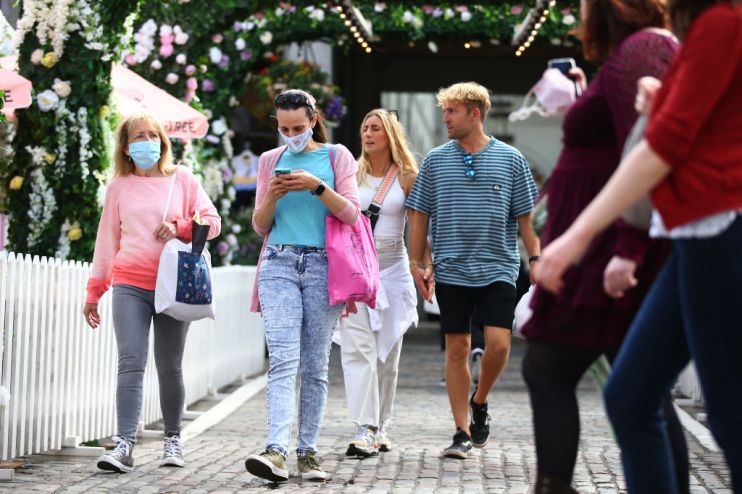International scientists warn UK Freedom Day is ‘murderous’ as Whitty says numbers could ‘get scary’

A group of 1200 international scientists have clubbed together to condemn Boris Johnson’s decision to go ahead with Freedom Day next week as “murderous”, as Whitty warned Covid-19 still had a “long way to run in the UK.”
It builds upon an open letter penned last week and signed by1400 scientists and doctors that accused the UK government of conducting a “dangerous and unethical experiment” with its plan to ditch restrictions on 19 July.
In the latest eleventh hour criticism of the decision, the same organising group The Citizens and 1200 international scientists held an emergency virtual summit and signed a statement warning the PM’s lifting of nearly all restrictions on Monday is “reckless” and a matter of “national and global irresponsibility.”
The group was made up of current and former government scientific advisers in the UK and all over the world, including New Zealand, Australia, Israel, Italy, Taiwan and South Africa – who all urged the UK government to “urgently reconsider” the plans for Monday.
The scientists warned that the easing of restrictions would have a “profoundly damaging” impact in England and the rest of the world, providing an ideal breeding ground for new variants of coronavirus to emerge that could then spread rapidly.
“The UK is one of the world’s leading travel hubs – any variant that becomes dominant there is likely to spread to the rest of the world,” the letter said.
“This already happened with the Alpha variant at the beginning of this year and it is likely that the UK contributed significantly to the current spread of Delta across Europe and North America.
Boris Johnson’s government – particularly as the current chair of the G7 – has a sense of responsibility towards the rest of the world, and particularly low and middle income countries who have limited access to vaccines, the scientists said.
A coronavirus adviser to New Zealand’s government, Prof Michael Baker, expressed astonishment at the UK’s strategy, and said: “In New Zealand we’ve always looked to the UK for leadership. You have a remarkable depth of scientific knowledge.
“You’ve done remarkably well in vaccine development and roll-out. Remarkable clinical trials that we’re drawing on. And that’s why it just seems so remarkable that you’re not following even basic public health principles here.”
Stephen Duckett, former secretary of Australia’s health department, said: “There is no reputable public health adviser of any kind who would recommend opening up at a time when the virus is spreading rapidly.”
Opening up as planned on Monday “just defies any logic, any science of any kind”, Duckett said, warning “opening up is both stupid in public health terms and stupid in economic terms.”
Walter Ricciardi, president of the World Federation of Public Health Associations and Covid adviser to the Italian health minister, said it was “very difficult for us to understand, having a worldwide perspective” how the Prime Minister would go against the advice of scientific advisers in the UK in opening up.
It comes as England’s own chief medical officer Chris Whitty told an online seminar hosted by the Science Museum on Thursday that hospitalisations due to Covid were doubling every three weeks and could hit “scary numbers” in the future.
“I don’t think we should underestimate the fact that we could get into trouble again surprisingly fast,” Whitty said, adding that in five to eight weeks, hospitalisations could be “really quite serious.”
He warned “we are not by any means out of the woods yet”, and also mentioned global progress with the disease and said: “This has got a long way to run in the UK, and it’s got even further to run globally.”
In yet another sign that Covid cases are multiplying in the UK, the ONS published estimates today that suggest 577,700 people in England had Covid last week – equating to one in 95, or over 1 per cent of the population.
It marks a sharp increase from the previous week, when ONS data suggested one in every 160 people in England had Covid.
The last time more than one per cent of England’s population had Covid was in February, during the country’s major winter lockdown.
Hospital admissions also increased by 61 per cent in the week to 10 July, with older age groups accounting for most hospitalisations, but the least positive Covid cases.